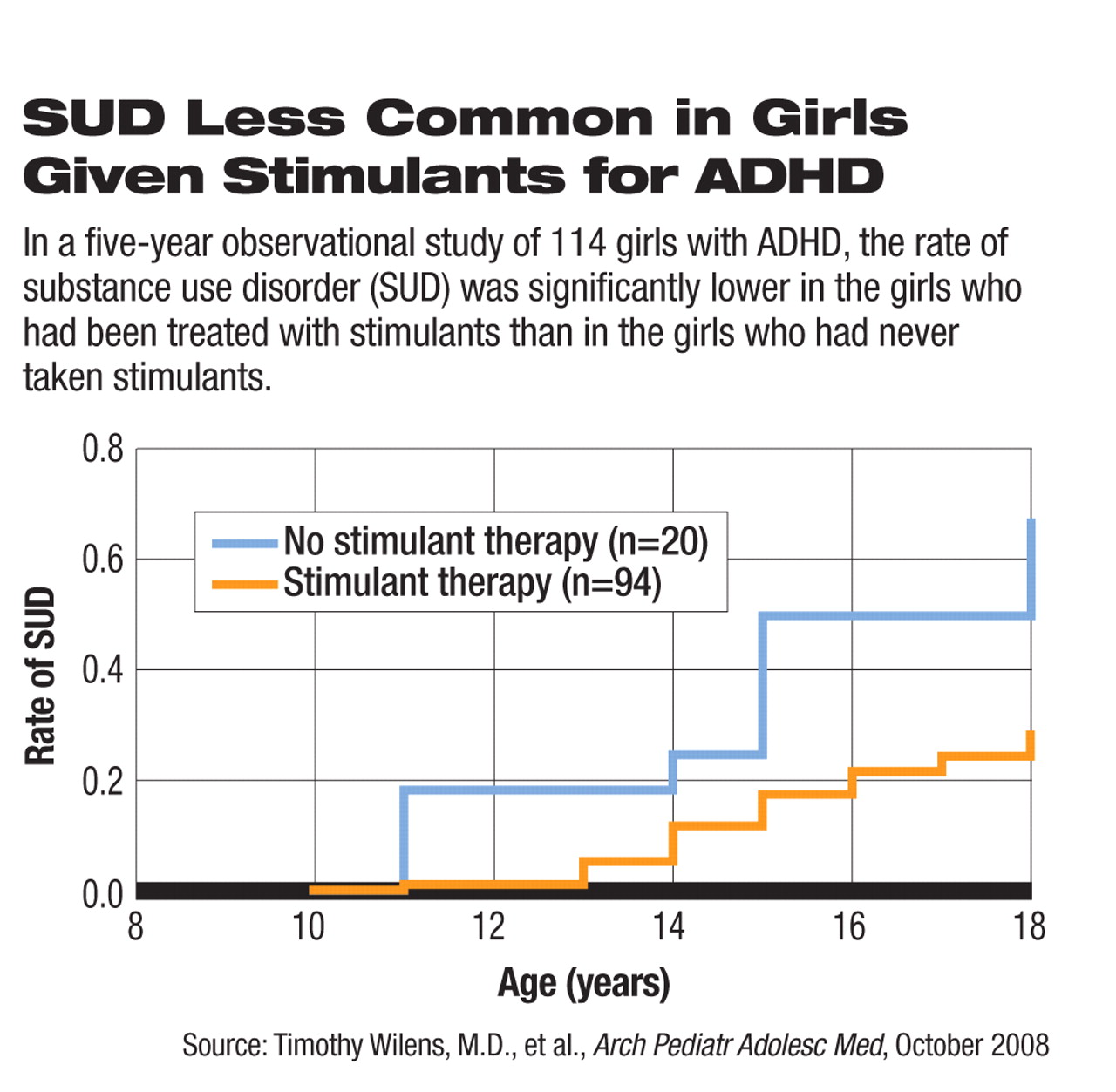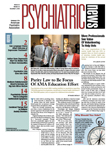Despite their potential for being abused, stimulants prescribed to treat children with attention-deficit/hyperactivity disorder (ADHD) do not increase the risks they will develop substance use disorder (SUD), alcohol use disorder, or begin smoking in adolescence, according to a study published in the October Archives of Pediatric and Adolescent Medicine.
In this observational study, the authors collected long-term health data and medical treatment histories on 114 young female patients with ADHD. The participants were aged 6 to 18 at the start of the study and followed for five years.
Twenty participants who had never taken stimulant medications were compared with the other 94 participants who had been treated with stimulants for ADHD in terms of each subject's use of cigarettes, alcohol, marijuana, and other substances.
The study data were derived from a longitudinal case-control study of adolescents with and without the disorder. The study was naturalistic and was not randomized. Nevertheless, the authors stated that the patients with and without stimulant exposure did not differ significantly in age, family status and SUD history, ADHD severity, and rate of conduct disorder.
The girls in the cohort who had a diagnosis of ADHD and no stimulant exposure generally did not receive other types of treatment, according to the study's lead author, Timothy Wilens, M.D., an associate professor of psychiatry at Harvard Medical School and director of substance abuse services in the Clinical and Research Program in Pediatric Psychopharmacology at Massachusetts General Hospital.
The ADHD patients who had taken stimulants had a 73 percent risk reduction for developing a subsequent SUD and a 72 percent risk reduction in taking up cigarette smoking compared with those who had never taken stimulants. Both reductions were statistically significant.
Stimulant-treated patients who did take up smoking did so at an older age on average than those not treated with stimulants. All the SUD diagnoses were made by blinded evaluators using DSM-IV criteria.
In addition, exposure to stimulant treatment was not associated with increased risk of substance dependence and alcohol abuse or dependence.
“The results of this study should calm the fears of both parents and clinicians that early stimulant treatment will lead to cigarette smoking or substance use in adolescence,” said Wilens.
On the contrary, he continued, “the data showed a reduction in cigarette smoking and substance use risks [associated with stimulant use] at least in adolescence, which adds to a growing literature on the long-term positive effects of ADHD treatment on the development of these sequelae.”
The study was funded by the National Institute of Health and the Lilly Foundation, the charitable arm of the pharmaceutical company.
Youngsters with untreated ADHD, especially adolescents, are at a significantly increased risk of developing substance use problems. Past research has shown that stimulant treatment does not increase the risk of smoking and substance use in boys with ADHD, the authors noted.
An abstract of “Effect of Prior Stimulant Treatment for Attention-Deficit/Hyperactivity Disorder on Subsequent Risk for Cigarette Smoking and Alcohol and Drug Use Disorders in Adolescents” is posted at<archpedi.ama-assn.org/cgi/content/abstract/162/10/916>.▪

